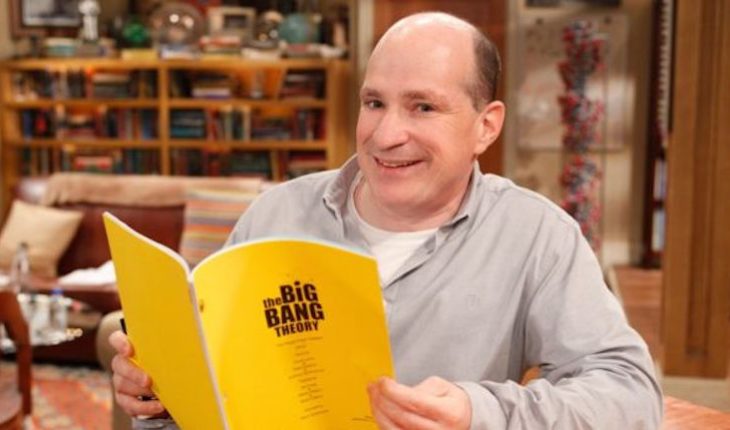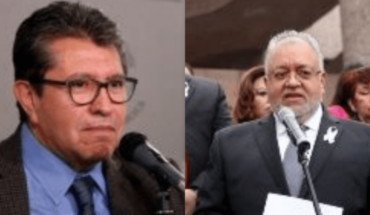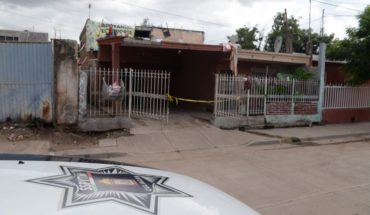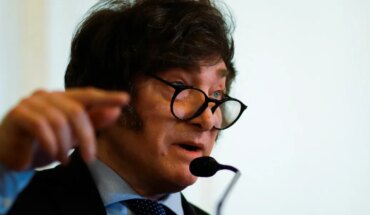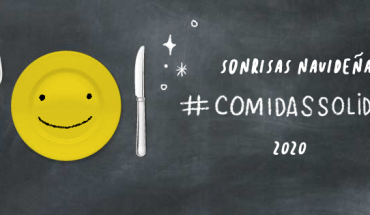In addition to being a renowned particle physicist, Saltzberg is the scientific advisor to Televis’s successful comedy American Ion, that this Thursday comes to an end after 12 years in the air.
The Director of the Department of Physics and Astronomy at the University of California in Los Angeles (UCLA) contributed and verified all the scientific information that appeared in the series.
5 data you may not know about “The Big Bang Theory”, the successful American series that will end after its 12th season
This included the theories and equations drawn on the boards of the protagonists, a distinctive hallmark of the Sitcom.
A responsibility that may not have been so great for someone who, among other things, is trying to figure out what the heaviest known particle might be.
Why the large Hadron collider will close for two years
The following is a summary of a conversation with Professor Saltzberg about the experience of working on one of the most popular shows in American TV history.
How does a scientist end up working on the production of a TV series?
The decision on whether or not to use a scientific adviser is the writers and creators of the series. For example, you could try to get the content of a movie like “Back to the future” to be accurate, but then you’d have the counselor say, “Well, we don’t really know how to travel in time,” and that’s where the movie would end.
But the concept of the writers of this show was that the characters were real-life people, so they wanted science to be too.
Once they made that creative decision, they asked and through a friend of a friend of a friend, they contacted me.
The American series, which comes to an end after 12 seasons, is about a group of scientists and their neighbor, who aspires to be an actress do they seem in something comedy and science?
The process of making the first chapter of the series was remarkably similar to doing experiments. We often do prototypes of things we are building, to know if they can work or not. In the world of comedy, they make a pilot, which is basically a prototype.
Comedy is an empirical process, just like science. They write jokes, they think they might be funny, but then the audience laughs or not and it’s hard to refute that.
It’s the same in physics: we devise theories about how particles can disintegrate, but then we have to check whether those are fulfilled or not.
In this sense, there are many similarities between doing a comedy show and a particle experiment.
The millionaire profits that still generate famous television series that came to an end years ago
What was your work specifically about the series?
The most obvious part is reading the scripts and making sure that all the scientific content is correct. Sometimes they left a blank space in parentheses with the expression “Here’s a scientific term” and then gave them options of some words.
It took Me a while to verify, but not much. And I skipped the scenes where there was only romantic content.
The Big Bang Theory ends with 279 episodes, which makes it the longest live comedy in the history of the televisiónHablemos when he got scripts to review while working in Antarctica
This series has been maintained for about 12 years and I had to follow my research. I couldn’t make TV just because I’m a teacher! He worked with science balloons launched in Antarctica. Fortunately, there is internet there, so they sent me the scripts and returned them with limits.
Chuck Lorre, one of the co-creators of the series, said he believed that The Big Bang It was the only sitcom that sent scripts to Antarctica, and he was probably right.
Have you ever made a mistake in the equations drawn on the blackboards of the characters?
Once. I wrote the bar (subatomic particle) wrong in a chain of decay and a friend wrote me an email immediately pointing out the error. In a later chapter, I corrected but there was no turning back. But then I thought that if I made that mistake, so could Leonard (character in the series played by Johnny Galecki).
As for the dialogues, I know that there were two errors but I will not reveal them because hardly anyone noticed. On one occasion, we misspoke the name of a scientist, we confused his first name with the second. And the great-grandson of the famous scientist sent me an email to clarify it. I felt pretty bad.
The series was released in 2007 and achieved worldwide success how did you contribute to make a series that would be digestible for a broad audience, but at the same time interesting for scientists?
A lot of the people who see it don’t have to know science, so at this point one wonders what is the value of it being accurate. It’s a creative decision and I worked to help the creators get what they wanted. I also think that the fact that it was real content made the actors believe what they were saying.
Some critics of the series point out that it reinforces stereotypes about scientists and about women in the scientific community. How do you think this was handled?
If you have five characters and 20 minutes per episode, on average each character is dedicated about 4 minutes. However, if instead of seeing a single chapter, you see the 279 that have been made, you will realize that they are characters with very particular characteristics and distinctive. No one would see 279 chapters if it’s a stereotype.
One of my favorite examples is that Sheldon’s character (played by Jim Parsons) is a science lover who likes comics, which means he should not know anything about American football. That would be the stereotype.
But, actually, when the writers outlined this character, they thought, “It’s from Texas, where football is popular, and he loves the rules, so of course he must know the rules of football.”
I was helping to review the script and had written some things when we were still starting, it was just a few pages. Then I found out that Stephen Hawking was going to be on the show and I got really nervous because I knew I’d just read what I wrote.
I was afraid that I would say “this makes no sense and I don’t want to have anything to do with that program.” Fortunately it didn’t happen.
The tribute to Stephen Hawking that the Big Bang Theory series had to cut off from its end-of-season chapter
Do you think the series has had any impact or influence on science?
We cannot do a controlled experiment or delay time to another universe where there is no The Big Bang Theory, But we have seen an increase in enrollment in the physics and astronomy careers in recent years. Who knows if for the show or because in general there is a greater interest in science and technology.
Academically and without evidence, I think we have managed to show people that there are people in the world today who make a career in the scientific field.
David Saltzberg participated in some of the panels of Comic-Con’s convention to talk about “The Big Bang Theory” in 2016 were there any theory or topics of great relevance that could not be addressed in the series?
I think nothing was ruled out. But in general, the themes developed tended to be a little more esoteric because I think that was the nature of this group of people. If they had been atmospheric scientists, they probably would have talked about global warming, but they were not the subjects they were working on.
Science is vast, could you do this advice yourself? Or did you ever call some colleagues from other areas?
I certainly don’t know of all the scientific fields, although it did help that the interests of the characters were quite aligned with the things I know, so I was able to give the writers good material.
I was trying not to do the typical search for Wikipedia, so, for example, when we had to add neuroscience content, I consulted with a friend who is a neuroscientist. Although precisely Mayim Bialik, the actress who plays the character of the neuroscientist, has a PhD in neuroscience.
How does it feel to know that you will no longer work in The Big Bang Theory?
I haven’t assimilated it yet. Planned see the final chapter with students from a physics club, so I’ll buy pizzas and let’s project it and see it together. Maybe that’s when I assimilate it.

